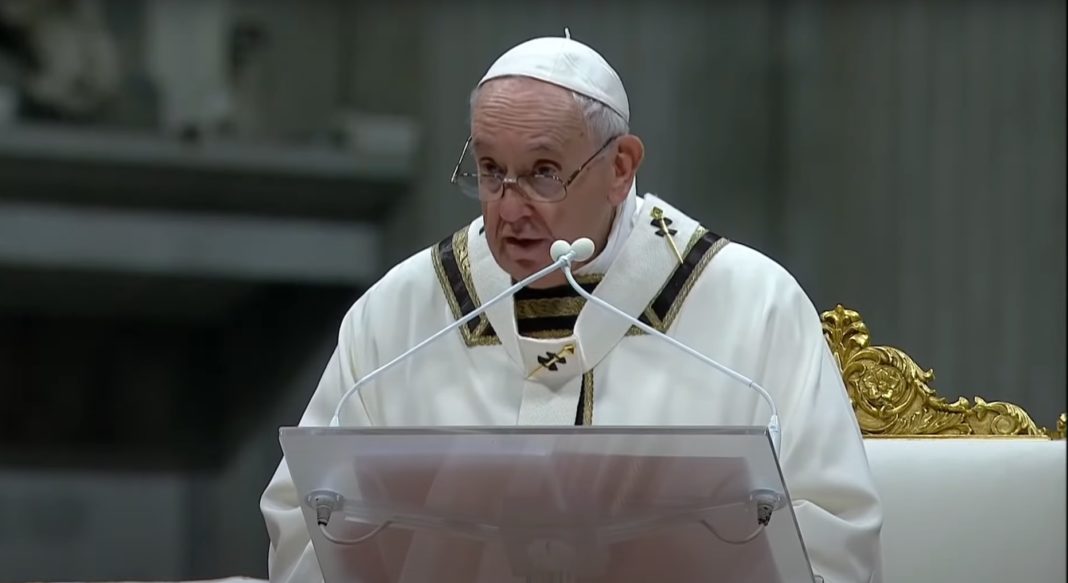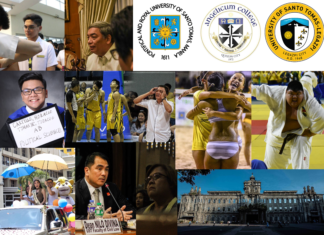 Last July 16, 2021, Pope Francis issued “Traditionis Custodes,” a motu proprio (a document issued on one’s own initiative) that addresses the “constant search for ecclesial communion” to promote the “concord and unity of the Church.” In this apostolic letter, Pope Francis restricted the traditional Latin Mass, which his predecessor, Pope Benedict XVI, in his 2007 apostolic letter “Summorum Pontificum,” allowed to be practiced as an “extraordinary form” of the Mass.
Last July 16, 2021, Pope Francis issued “Traditionis Custodes,” a motu proprio (a document issued on one’s own initiative) that addresses the “constant search for ecclesial communion” to promote the “concord and unity of the Church.” In this apostolic letter, Pope Francis restricted the traditional Latin Mass, which his predecessor, Pope Benedict XVI, in his 2007 apostolic letter “Summorum Pontificum,” allowed to be practiced as an “extraordinary form” of the Mass.
“Traditionis Custodes” was issued supposedly after the Vatican’s Congregation for the Doctrine of the Faith held “detailed consultation” with bishops around the world in 2020 through a survey, assessing the application of “Summorum Pontificum.” The details regarding the survey such as the number of participants and the content were not disclosed to the public.
READ: Pope’s ‘Traditionis custodes’ draws mixed reactions from Catholics
It is curious that even in UST, a pontifical institution and no less than “The Catholic University of the Philippines,” nobody seems to have been consulted, much less heard consultations about “Traditionis Custodes.” None of the clerics or theologians or theology professors had any knowledge about the alleged survey of bishops. To be sure, the bishops seemed not to have consulted the faithful at all on what to do with the Latin Mass.
Pope Francis has signaled that his papacy would be characterized by “synodality” and greater consultation with bishops. And in the run-up to his brainchild, the “Synod on Synodality” in 2023, the bishops have been instructed to hold discussions with the laity on the three supposed themes or targets of the “Synodal Church”: “communion, participation, mission.”
But all of these “themes” and “synodal consultations” seem absent when the Pope issued “Traditionis Custodes”!
It is disappointing that Pope Francis, who has always advocated for dialogue and inclusivity, has severely limited the holding of the Tridentine Mass without broad discussion and consultation. Instead of opening an opportunity to allow the faithful to practice the traditional Latin Mass and introduce it to more Catholics, especially the youth, the Vatican has unfairly limited, nay practically banned, its practice.
We understand that the sacredness of the traditional Latin Mass must be preserved from exploitation by ideologues and so-called traditionalists. Nonetheless, suppressing the Latin Mass is not the best way to deal with such problem. Malpractices and other exploitations must be checked and banned, but not the whole Eucharistic celebration. The Holy Mass, whether it is the traditional Latin Mass or the Novus Ordo, must be shared and nurtured through communal celebration, dialogue, and education.
Regardless of the alleged divisions the traditional Latin Mass may be causing among the faithful, it, along with the Novus Ordo, serves as an avenue toward communion with God, an expression of faith and devotion to God. For all intents and purposes, “Traditionis Custodes” has abolished the Latin Mass; this in itself is ecclesiologically suspect, even theologically heterodox. Can a motu propio disregard the Latin Mass that was codified by an ecumenical council, no less than the longest ecumenical council in history (1545-1563)? While giving back jurisdiction over the celebration of the Latin Mass to bishops, “Traditionis Custodes” declares that every decision regarding the holding of Mass in an ordinariate must be approved by the Vatican. This practically ensures that the Latin Mass won’t be celebrated in any diocese in the world. Where is synodality here? “Traditionis Custodes” practically criminalizes the Latin rite and may drive underground those who wish to celebrate it, making them look like the catacomb Christians of Rome during the first centuries of Christianity.
So, is the Vatican persecuting those who want to celebrate the Latin Mass? Has the See of Peter now assumed the role of persecutor of what could be the third millennium’s Roman martyrology? That “Traditionis Custodes” has centralized all decisions about the Latin Mass to the Vatican flies in the face of the Pope’s purported claims of synodality, devolution, and promotion of lay participation. Ultimately “Traditionis Custodes” is Ultramontane.
In his World Communications Day message, released on Jan. 24, Pope Francis warned the faithful on the fading ability to listen, and that the two-year global consultation for the Synod on Synodality is a good opportunity to build a “communion” that mutually listens to one another. It is true that the liturgy is our “first source” of “divine communion” with God so in this crucial time where the Covid-19 pandemic remains a huge threat to humanity, may the Vatican adhere to the call to allow more dialogue on the celebration of the traditional Latin Mass in order to open opportunities for the faithful to express their faith without the inquisitorial eye or persecutorial arm of Rome.














